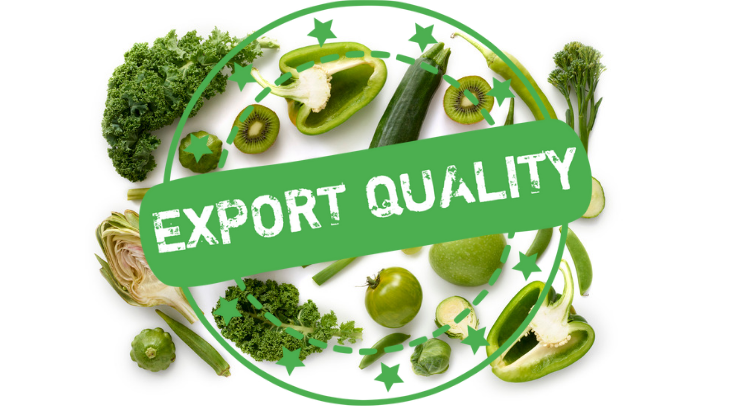India, with its diverse culinary heritage, stands as one of the world’s top producers and exporters of food products. From spices to grains, dairy, and processed foods, Indian food exports play a vital role in the global food market. To uphold the high standards demanded by international buyers and guarantee the safety and quality of its offerings, India has established comprehensive regulations governing food exports.This blog will delve into the key regulations and standards that safeguard the safety and quality of Indian food exports, aiding businesses in maneuvering through the intricate realm of international food trade.
1. Food Safety and Standards Authority of India (FSSAI)
Central to India’s food safety framework is the Food Safety and Standards Authority of India (FSSAI). Formed under the Food Safety and Standards Act of 2006, the FSSAI is responsible for establishing standards for food products and ensuring compliance. Its role is crucial in confirming that food items meet the necessary safety benchmarks before being exported.The FSSAI establishes guidelines for:-
- Food labeling: Ensuring clear labeling on food products that includes ingredients, nutritional information, allergens, and expiration dates.
- Food additives and preservatives: Regulating the use of additives to ensure they are safe and authorized for food use.
- Good Manufacturing Practices (GMP): Outlining hygiene and operational procedures for manufacturers to follow, ensuring that products are produced in sanitary conditions.
2. International Standards and Certifications
Indian food exports must comply with various international food safety standards to succeed in global markets. Key certifications include:
- Navigating Indian Food Export Regulations and Standards: A Guide to Ensuring Safety and Quality ISO 22000 is an international standard detailing the requirements for a food safety management system, providing a framework for ensuring food safety throughout the supply chain. Many Indian food exporters pursue this certification to show their dedication to producing safe, quality food.
- HACCP (Hazard Analysis and Critical Control Points) : HACCP is a widely accepted system for identifying, evaluating, and controlling food safety risks. To minimize contamination risks, Indian food manufacturers and exporters must adhere to HACCP principles.
- Global GAP (Good Agricultural Practices): Global GAP certification ensures that food is cultivated and harvested through environmentally sustainable and socially responsible methods. Indian agricultural exporters are encouraged to obtain this certification to enhance their access to international markets focused on sustainability.
- BRC (British Retail Consortium) : The BRC certification is globally recognized and often a requirement for European food retailers, guaranteeing that food products meet high-quality standards, are safe for consumption, and are produced ethically.
3. Agreements with Importing Countries
In addition to domestic regulations, India must also conform to the food safety and import standards of the countries receiving its food products. Each country has distinct standards that may include maximum pesticide residue limits, hygiene requirements, and specific quality specifications.
- USFDA (U.S. Food and Drug Administration) : For Indian food exporters aiming at the U.S. market, compliance with USFDA regulations is crucial. This includes registering food facilities, ensuring correct labeling, and meeting U.S. food safety and quality standards.
- EU Regulations: The European Union enforces stringent food safety and traceability regulations. Food products must satisfy specific safety standards, including residue testing and certification requirements. Indian food exporters must ensure compliance with these EU regulations to enter the European market.
4. Export Documentation and Testing Requirements
Prior to exporting food products from India, they must undergo multiple testing and documentation procedures to ensure adherence to both Indian and international standards.
- Certificates of Origin and Phytosanitary Certificates: Many Indian food exports require Certificates of Origin to confirm they were produced in India. Agricultural products may also require a Phytosanitary Certificate to verify they are free from pests and diseases.
- Pre-shipment Inspection : Pre-shipment inspection (PSI) is mandatory for numerous food products being exported from India. It involves sampling and testing to ensure compliance with both FSSAI and destination country standards, overseen by government-approved entities like the Export Inspection Council of India (EIC).
5. Key Food Export Regulations
Here are important regulations guiding the export of specific food products from India:-
- Spices: Indian spices, a coveted export, must follow spice-specific regulations, including limits on pesticide residues and aflatoxins, regulated by the Spices Board of India.
- Fruits and Vegetables: The export of fresh produce must comply with Phytosanitary Regulations to prevent pests and diseases, often undergoing rigorous pesticide residue testing.
- Dairy: Exports of dairy products, such as milk and cheese, are overseen by the Export Inspection Council of India (EIC), requiring compliance with FSSAI hygiene and safety standards, as well as international standards like ISO 22000.
- Processed Foods: Processed food exports are subject to food safety and hygiene regulations focused on shelf life, labeling, and safe packaging.
6. Challenges and Opportunities in Indian Food Exports
Despite notable advancements in ensuring the safety and quality of food exports, several challenges persist:-
- Complex Compliance: Navigating the regulations of multiple importing countries can be intricate and costly. Staying updated on international standards necessitates constant vigilance.
- Logistical Hurdles: Exporting food often requires strict temperature control, packaging, and delivery timelines, which can be especially challenging for smaller exporters.Nonetheless, these difficulties also present opportunities for businesses to invest in new technologies, elevate production practices, and explore emerging markets.
Ensuring food safety and quality is essential for the success of Indian food exports. The country has established a comprehensive regulatory system to ensure that its food products meet both domestic and international standards. By adhering to these regulations, Indian food exporters can guarantee their offerings are safe, high-quality, and competitive in the global marketplace.
Whether you’re a business aiming to export food products or a consumer interested in the journey of Indian food items, understanding these regulations and standards is crucial to recognizing the efforts behind the safety and quality of Indian food exports.

